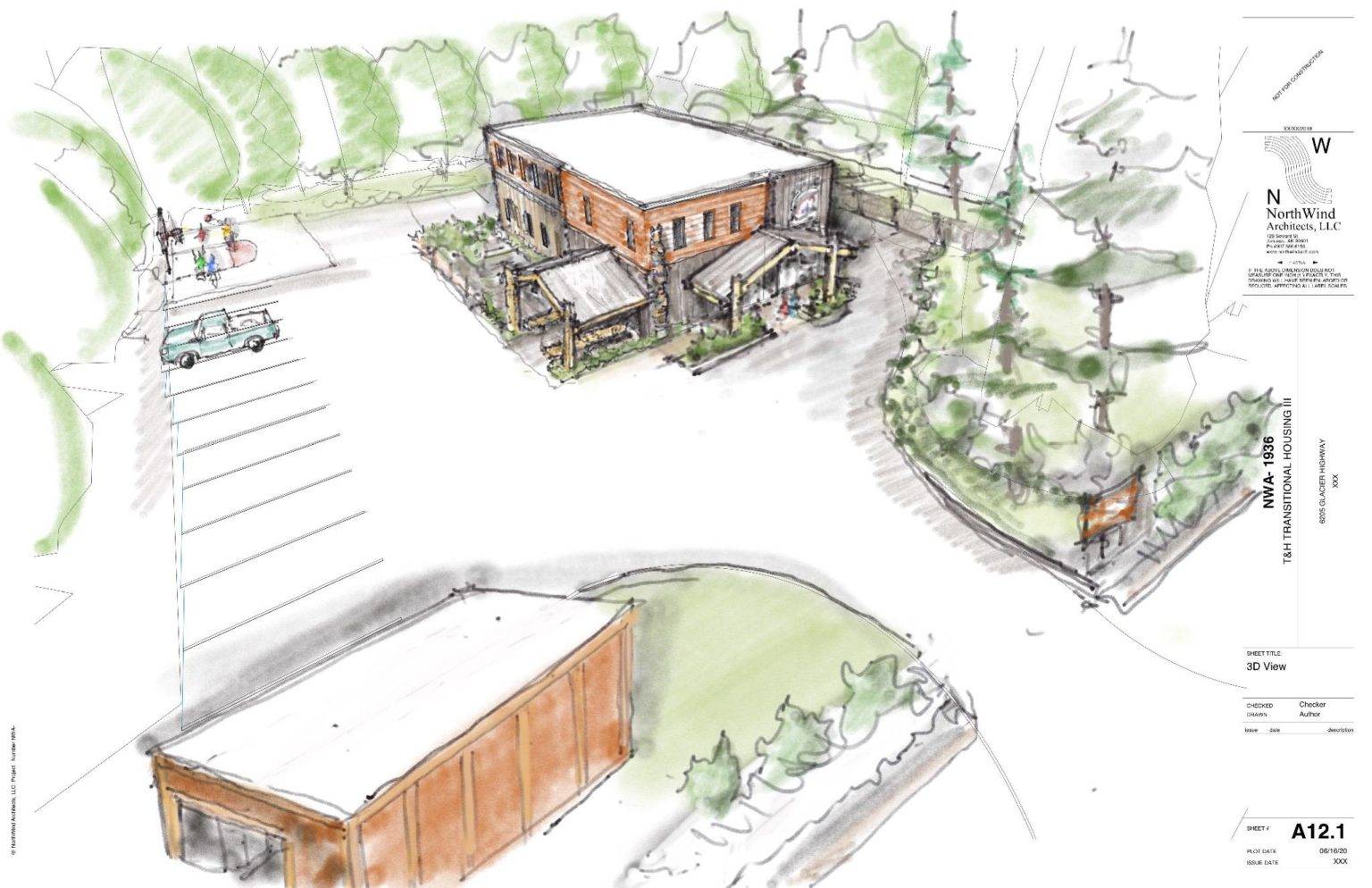The City and Borough of Juneau accepted an appeal against the permitting of a proposed transitional housing facility in Lemon Creek at their meeting Monday evening.
The property’s owners, Central Council Tlingit and Haida Indian Tribes of Alaska, can still develop the property while the appeal process goes on, according to City Attorney Robert Palmer, but they do so at their own risk.
Tlingit and Haida submitted plans to build two transitional housing facilities for people recently released by the Department of Corrections, but members of the community are concerned about the proximity of such a facility to nearby Dzantik’i Heeni Middle School and a bus stop used by students. The facility is also on the same block as the police station.
No public testimony was given Monday night, and Assembly members debated whether the appeal’s writer had actually articulated enough of their reasoning, Palmer said, but the Assembly ultimately agreed to take up the appeal.
Submitted by Shawn Wille of Lemon Creek, the appeal says the Planning Commission approved the request for inappropriate reasons and based on inappropriate and incorrect findings.
“The Planning Commission relied on non-relevant evidence that is not visible nor proven,” Wille said in his appeal which asks the Assembly to “reverse the decision and deny the conditional use permit.”
[Tlingit and Haida works to bring transitional housing projects to life]
A permit has already been issued, Palmer said, which is why Tlingit and Haida can build on the land until their permit is revoked.
In an interview Tuesday, Wille said he submitted the appeal on his own, but he did so after discussions with other community members.
“It’s in the middle of a school zone,” Wille said of the project’s location, on the corner of Alaway Avenue and Glacier Highway. “I see it as a problem with 16 felons sitting right on top of a bus stop (near a school). They can put their facility somewhere more appropriate.”
The Assembly appointed member Wade Bryson to oversee the appeals process, which could take several months, Palmer said. The city clerk’s office will reach out to both parties to arrange a meeting to agree on the terms of the hearing, Palmer said. After a hearing, in which either party can call witnesses or submit written and oral arguments, Palmer said there can be a long delay while a record is compiled for a preliminary decision.
Tlingit and Haida are aware of the community concerns and dedicated several pages of the project’s webpage to address common questions. The transitional housing would be a sober facility and have a resident manager and other rehabilitative services. The men eligible for housing at the facility are also eligible for unsupervised living accommodations so long as they’re approved by the Department of Corrections or a probation officer, Tlingit and Haida’s website says.
“Because of the Alaway Avenue Transitional Housing Project structured supervision, sobriety requirements, house rules, peer accountability, information sharing with probation/parole officers, and other support systems, we believe neighborhoods will be much safer than the alternative of released prisoners living in Juneau without these supports,” the website says.
Reached by phone Tuesday, Talia Eames, Tlingit and Haida’s reentry and recovery manager said the organization respects the Assembly’s decision and will abide by whatever is determined in this process.
• Contact reporter Peter Segall at psegall@juneauempire.com. Follow him at @SegallJnuEmpire.

